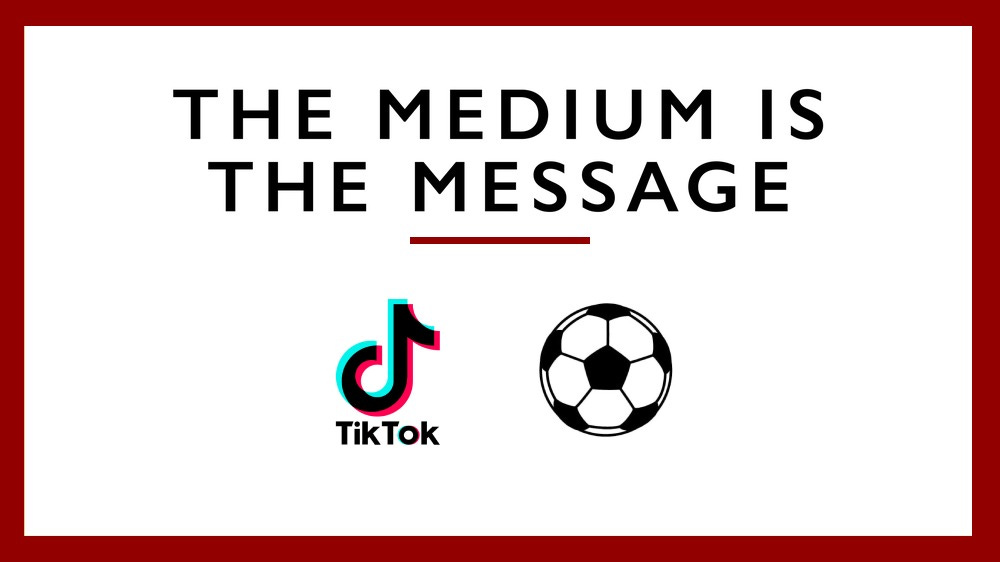Football analysis on social media and the illusion of knowledge
In the age of social media, hyper-rapid information, and massified attention deficit, analysis is worryingly transforming into synthesis.
In the age of social media, football analysis has undergone a radical transformation, evolving into a fast and accessible form of entertainment. Apps like Instagram and TikTok have become the new stages for self-proclaimed tactical and analytical experts, offering quick and appealing content. However, it is crucial to question what kind of knowledge these contents are truly conveying: is it analysis or synthesis?
To fully grasp the issue, it is essential to clearly distinguish between these two words. Analysis, by its nature, is a complex and detailed process. It requires time, study, and a profound understanding of context. A good analyst delves into a subject, exploring the smallest details and seeking to grasp the reasons and causes behind a phenomenon.
Conversely, synthesis is a process of condensing information. It involves extracting the main points and presenting them in a shorter and more accessible form. While synthesis can be useful in many contexts, it risks becoming a distortion of reality.
The content we find on social media is often extremely rapid and accessible to all. It was created to capture attention in the shortest time possible and to be quickly consumed. This type of communication is, by definition, superficial. Football analysis videos on Instagram and TikTok rarely exceed one minute, and in that brief time span, it is impossible to provide a true analysis. What is offered is a synthesis—a reduced and simplified version of reality.
Marshall McLuhan, one of the most influential media theorists of the 20th century, reminded us that "The Medium is the Message." With this famous sentence - which gives its name to the first chapter of his most famous work “Understanding Media: The Extensions of Man” - McLuhan sought to emphasize how the medium through which a message is transmitted profoundly influences the content of the message itself. Applied to our context, this means that the rapid and fragmented format of social media is unfit to convey in-depth analysis. The medium imposes a pace and structure that are not conducive to critical reflection and deep understanding. McLuhan argued that each medium has an inherent communicative structure that shapes and directs its content. In the case of social media, this structure is characterized by speed, brevity, and high interactivity. Algorithms reward content that generates rapid interactions, not content that requires time to be understood. This brings us to the conclusion that in the age of social media, hyper-rapid information, and massified attention deficit, analysis is worryingly transforming into synthesis. This change not only impoverishes the quality of information but also risks distorting our understanding of football.
The democratization of access to publishing on social media has allowed anyone to become a football analyst. This leads to a proliferation of opinions and syntheses that, rather than enriching our knowledge, end up trivializing it. The very nature of social media platforms pushes towards superficiality. Anyone can create an account and start sharing their opinions, regardless of their level of expertise or the quality of their analysis. This type of content not only reduces the complexity of football but also creates an illusion of knowledge. Viewers may feel informed and competent, but in reality, they only have a partial and simplified view.
It goes without saying that football is not a science. There is no yearning for objective truth because it does not exist. However, the resulting variety of opinions must be based on a solid and in-depth understanding of the game. Only through detailed analysis is it possible to develop informed opinions that contribute meaningfully to the debate.
However, it is important to clarify that the criticism of the superficiality of football analysis on social media should not be interpreted as an invitation to fall under the principle of authority. It is not about listening only to those who work in or have experience in the world of football, the only thing that truly matters is the arguments and their persuasive power. It is not the pulpit that makes the claims valid, but the quality and solidity of the arguments presented. Anyone can offer a valuable contribution to the football debate, provided their observations are well-founded and supported by accurate analysis. It is essential to evaluate ideas based on their intrinsic merit rather than the reputation of those expressing them.
Conclusion
In conclusion, the modern trend of consuming rapid and superficial football content on social media produces an illusion of knowledge. Consumers may believe they are informed and understand the game, but they are only scratching the surface. If one truly wants to understand football - which sounds like a stupid concept, but it should never be forgotten that football is still a leisure and entertainment activity and everyone is free to treat it exclusively as such - one should rediscover the value of in-depth analysis, which requires time and dedication. We must learn to be wary of quick and superficial syntheses and return to appreciating the complexity and depth of this sport, as well as any other field.




Every time Ball Don't Lai pops up in my inbox, I get excited, and every time I click through to the link, I'm reminded that Marco's one of the smartest thinkers in the game. Brilliant work as ever.